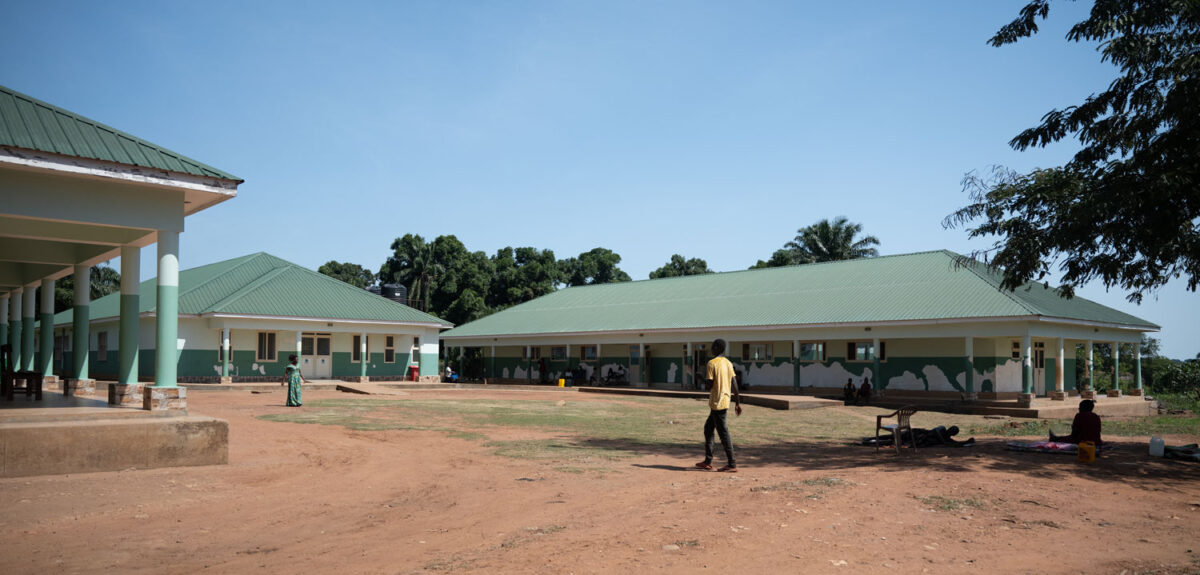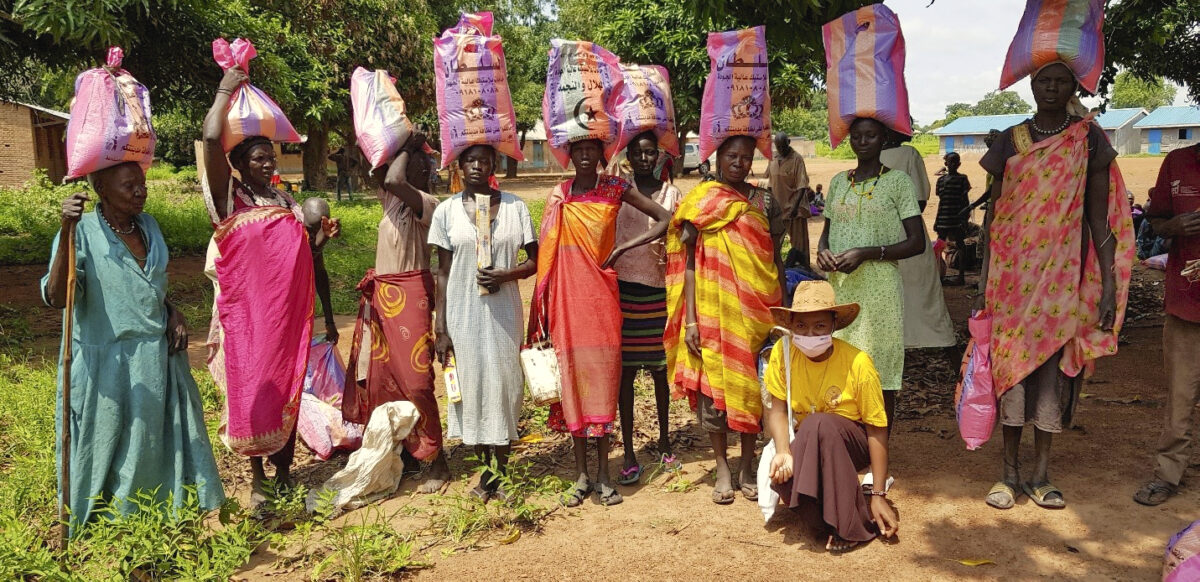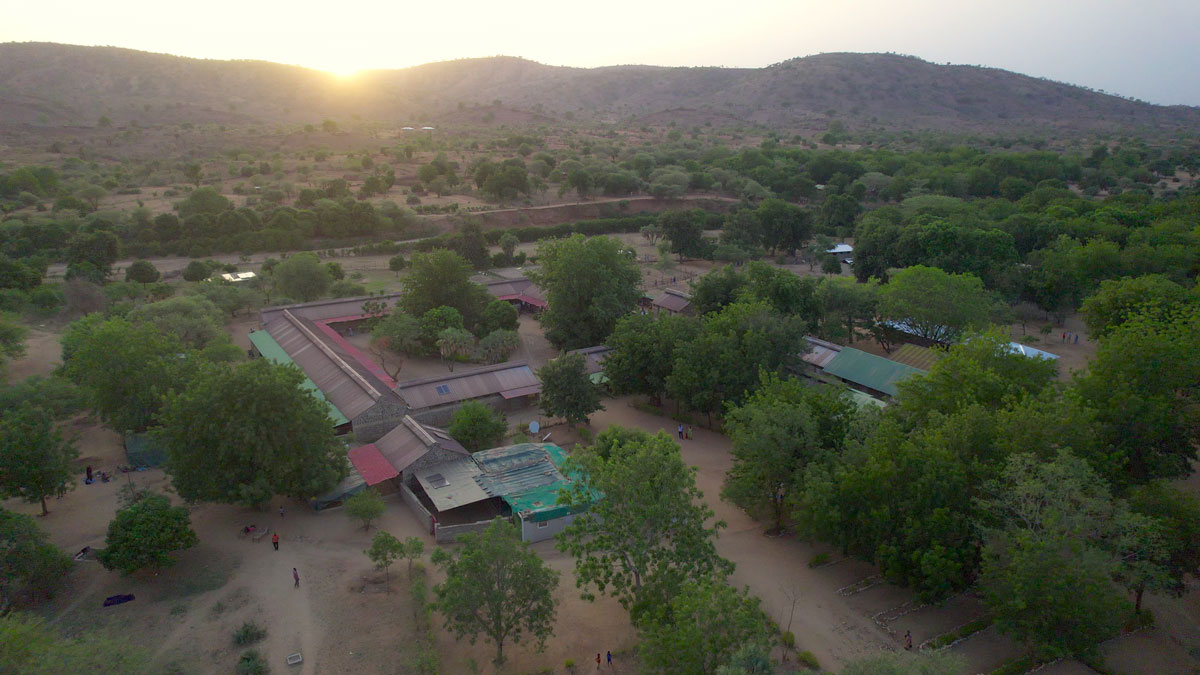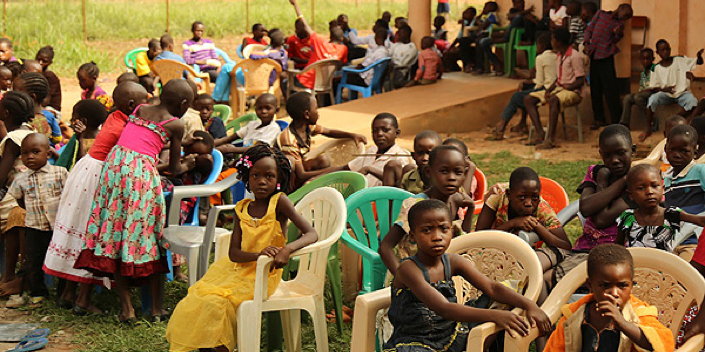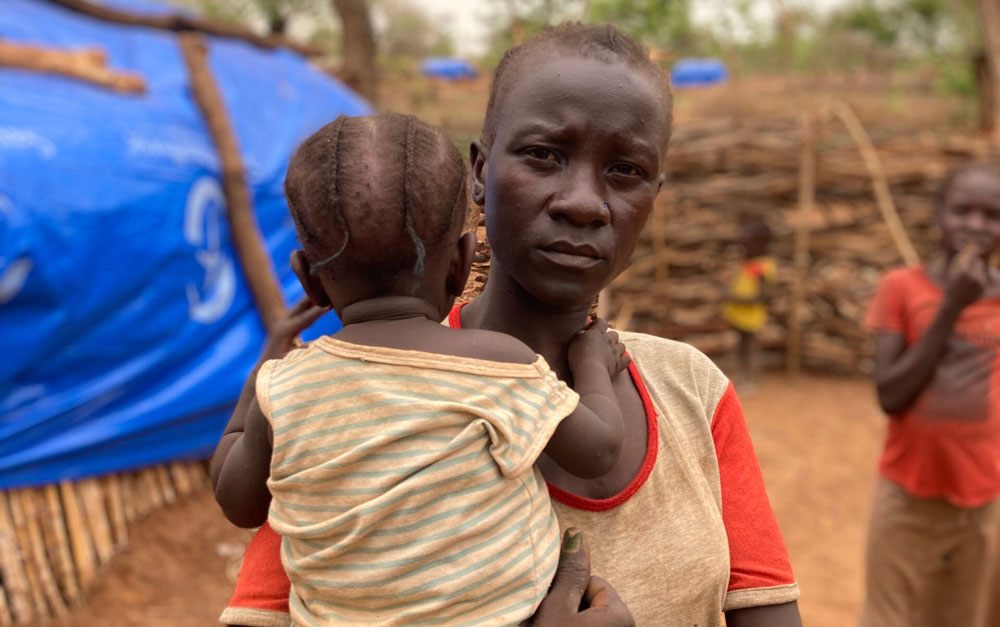
Nuba Becomes Critical Passage to Get Help into Sudan
“We feel forgotten by the world”
The Nuba Mountains are at the heart of a growing humanitarian crisis, facing both the threat of catastrophic hunger and the potential to serve as a critical gateway for delivering desperately needed aid to millions displaced by Sudan’s civil war.
Since April of 2023 when Sudan’s capital erupted in violence, a steady flow of Sudanese have been forced to flee their homes. Many sought refuge in the Nuba Mountains, a rugged and isolated region that has so far been distanced from the frontlines of battle. While the violence here isn’t as severe as Khartoum (the nation’s capital), the massive influx of refugees and growing threat of widespread starvation makes the situation disastrous.
It’s estimated since war broke out the population of Nuba has increased from 1.2 million to 3.9 million people. Now it’s home to some of the largest refugee camps since the war’s onset.
Residents of Nuba were already struggling with a severe food shortage before their population more than tripled. Now Nuba, like the rest of Sudan, is at risk to see massive starvation. As many as 3 million people could soon starve to death, agencies warn.
Hope to Deliver Help
But agencies also say the Nuba Mountains could be the key to getting aid into a devastated nation, where both sides of the conflict have commandeered transportation routes, brought commerce and services to a halt, made planting and growing impossible, and blocked the flow of supplies.
Fighting has choked off vital resources from reaching civilians in desperate need of food and medical care, intensifying the suffering in what’s become the world’s largest displacement crisis.
“With rapidly increasing needs and relatively safe accessibility, the Nuba Mountains are one of the few places in Sudan where a robust aid response could be scaled up,” says Refugees International, who urges an immediate ramping up of humanitarian efforts, particularly through the border of South Sudan. “It is an opportunity that cannot be missed.”
With donor support, even now Sudan Relief Fund is mobilizing distribution efforts to Nuba to help meet the tremendous need.
Snapshot of Sudan Crisis:
- The number of displaced now approaches 11 million
- Famine is officially declared in parts of Sudan
- 9 out of 10 are malnourished
- Death by starvation is escalating
- 14 million children need humanitarian support
- 95 percent of hospitals are shut down as outbreaks of
cholera and dengue fever rise - War crimes and human rights violations continue
Crises Beyond Hunger
Besides the magnitude of the hunger crisis, refugees who endured hellish conditions to get to the Nuba Mountains face additional obstacles when they arrive.
Lack of Shelter
Without enough tarps to go around in camps intended for 10,000 that now host upwards of 35,000 residents or more, many families are left exposed during the rainy season – a time of “intense and prolonged” rainfall – increasing vulnerability to waterborne diseases such as malaria and typhoid often carried by mosquitoes.
Lack of Clean Water
It’s not unusual for the only borehole to be more than an hour away by foot in one direction. Women and girls spend entire days in long lines waiting to fill jerry cans with water and making the return trip back to camp, despite being weak from malnourishment.
Lack of Sanitation
Camps intended for thousands fewer residents than their burgeoning populations face woeful lack of latrines and sanitation. An assessment in April found that over 84 percent of respondents used no sanitation facilities and over 95 percent of respondents had no access to handwashing.
Lack of Medicine and Trauma Services
Trauma is an insidious side effect of the brutal war experience. One local official said, “People are very traumatized by the fighting…Many have seen people killed and raped.” Stories of human rights atrocities emerge as IDPs report what they’ve seen and experienced. Many are robbed and assaulted through various checkpoints. A coordinator from Refugees International said, “IDPs put on a strong face, but when you ask their kids…they say my mom is always crying.”
Some of the seriously injured sustain permanent handicaps. Victims find themselves navigating life in a refugee camp while coping with both physical and psychological trauma from their wounds. 33 year-old Hani lost her daughter and son in a bombing in Khartoum, as well as one of her legs. She pleads for aid to come for disabled IDPs.
Facing the Giant
Relief organizations are issuing a warning for the world to step up and take action against the swelling humanitarian crisis. “They will continue to come until there is peace,” says a local leader on the constant influx of refugees.
Prevent Imminent Starvation
The immediate need is food relief. More than 18 million people – equal to the entire population of the Netherlands – are currently at risk of catastrophic hunger. In some parts of Nuba it’s now a ten hour journey in one direction to find trees that may still hold edible leaves or nuts – a currency that can mean the difference between surviving one more day or succumbing to starvation.
An hour outside the Sobouri refugee camp – one of the three largest in Nuba – a nutritionist who works in a ramshackle cement health clinic recounts how fifty children have already died in his district – all under age 5. He’s out of electrolyte solution and therapeutic food for the malnourished. At this point he is no longer seeing patients because there’s nothing he can do for them.
Humanitarian Support
A substantial scale-up of humanitarian support is urgent since Nuba is one of the few areas humanitarian aid can enter Sudan via its neighbor to the South. Aid needs to include both immediate food relief as well as seeds and agricultural equipment to local groups, so they can eat not only now but also later.
How You Can Help
Sudan Relief Fund continues to work in the Nuba Mountains with local partners to provide food, clean water, shelter, and medicine for the displaced, and organize assistance across the border to South Sudan. If you would like to help, all gifts will be used to stop starvation and provide lifesaving aid to refugee families. Go here to help.
To read more, follow these links to the news stories:

